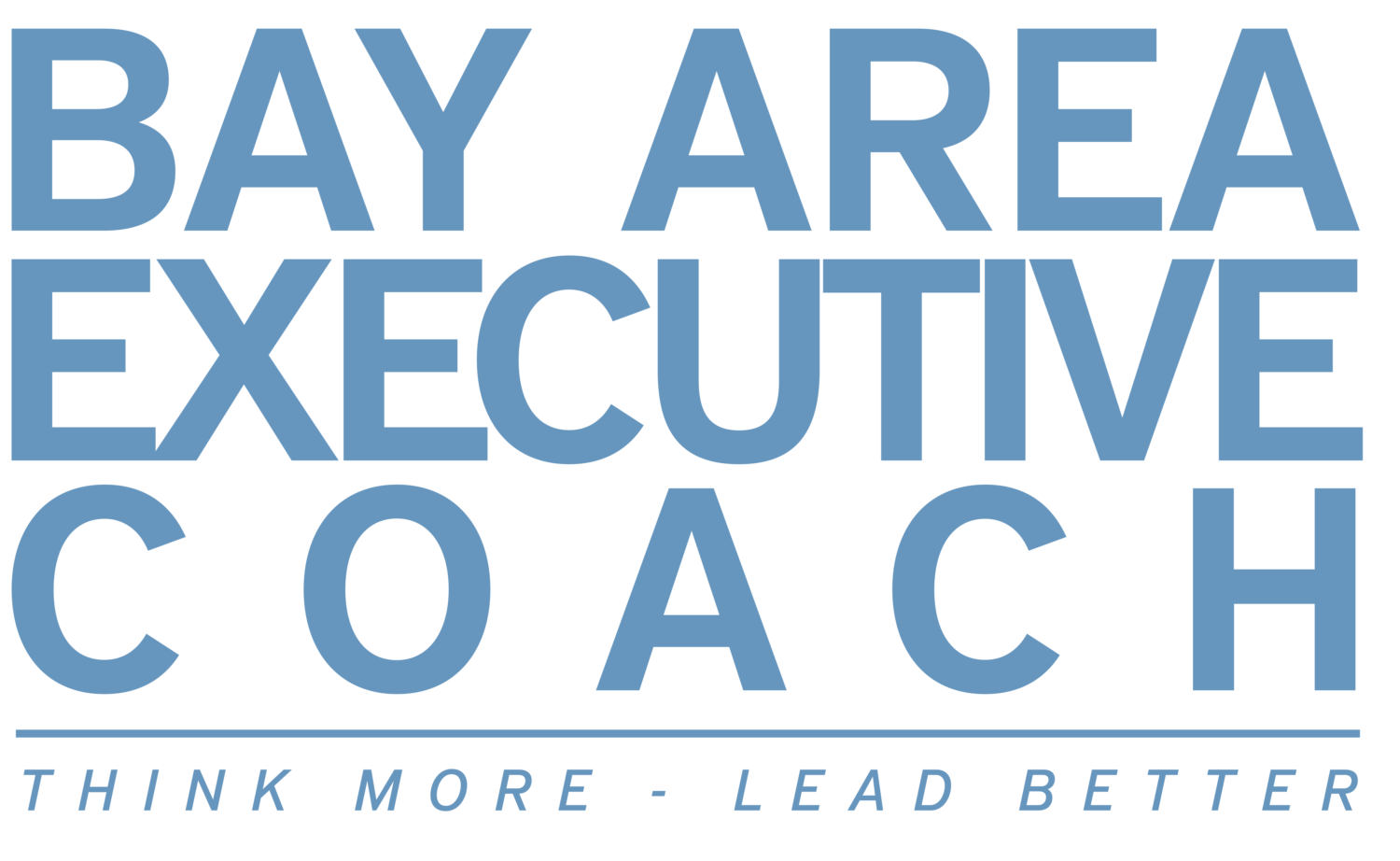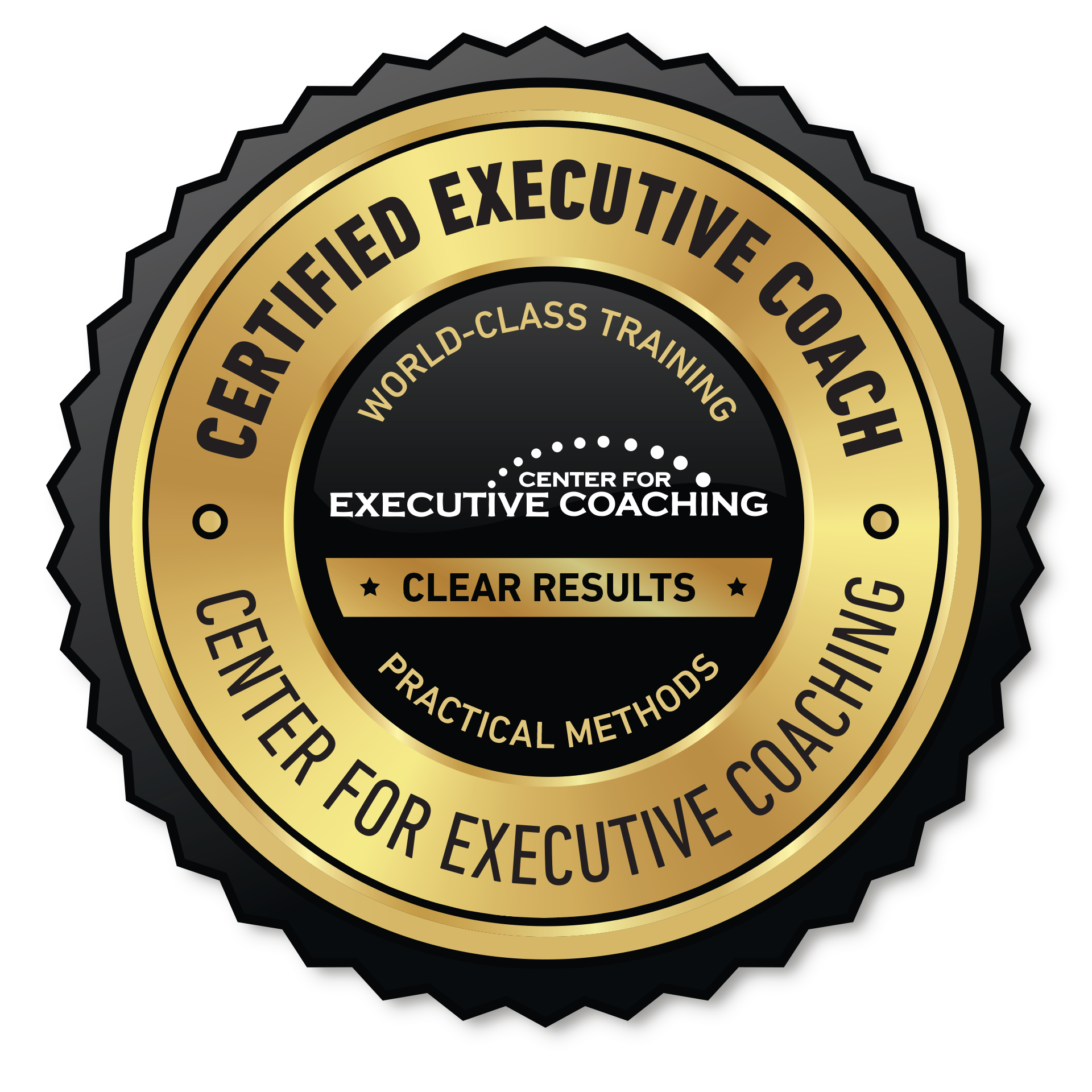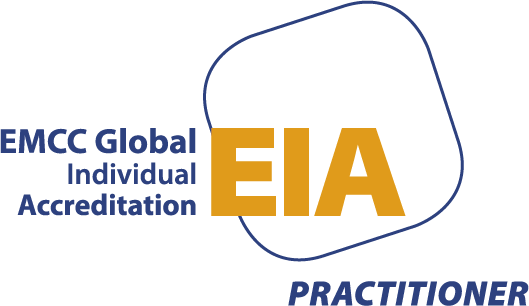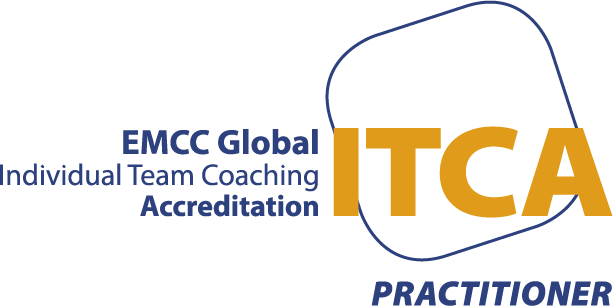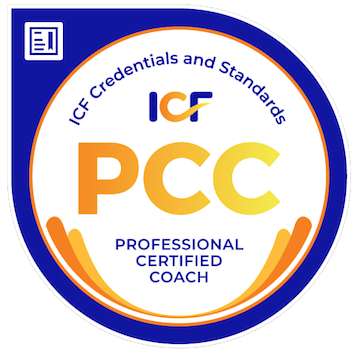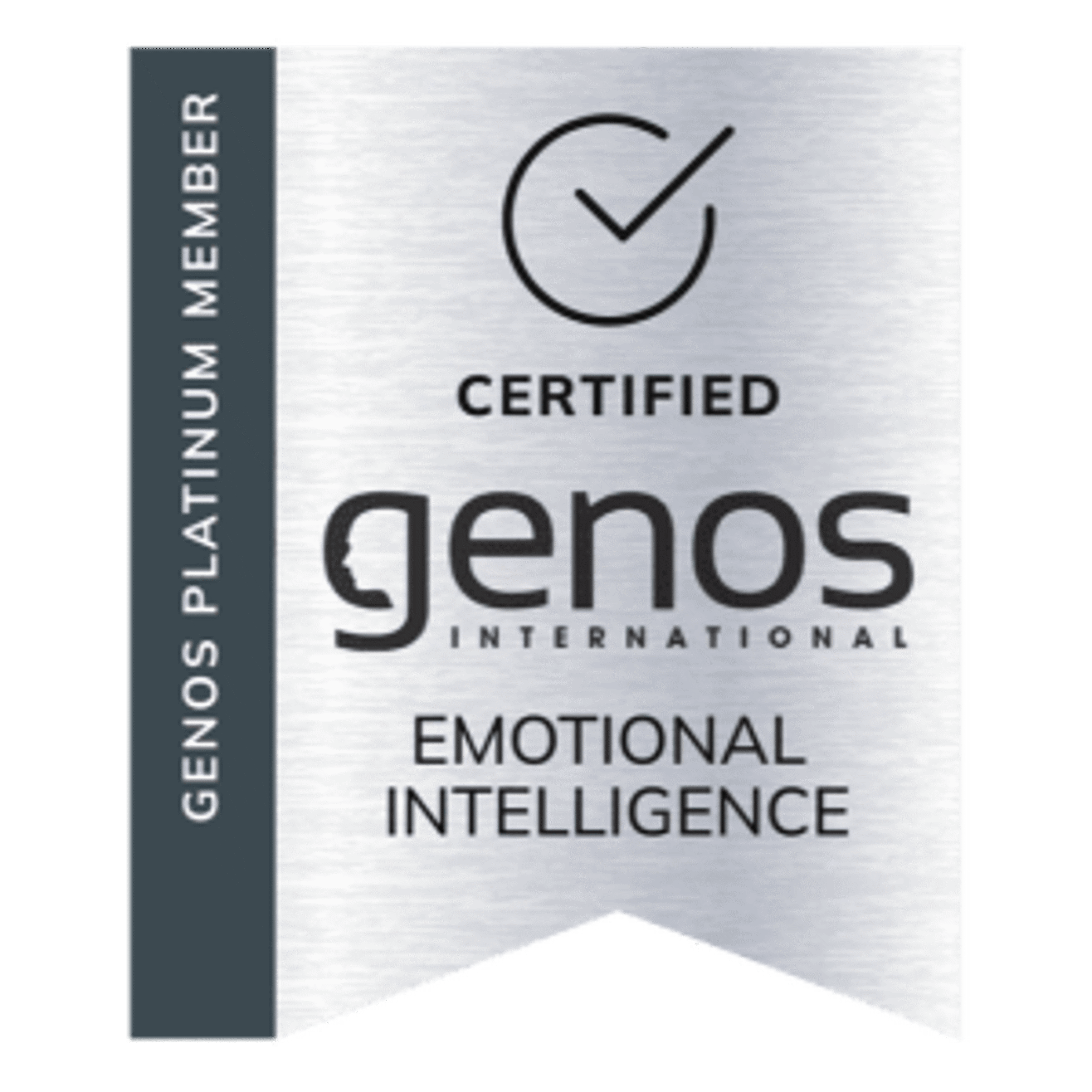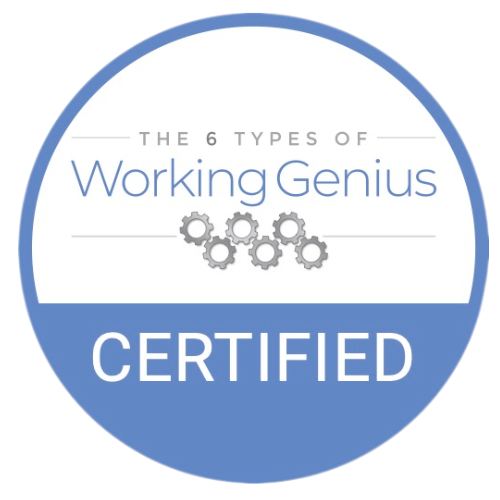Leadership will always be something that takes courage and determination to do well. As the business landscape changes, new skills rise up as necessary to lead effectively. We hope this list will serve you as you evaluate what you do well and what you could do better.
The essential leadership skills on our radar for 2025 are:
- AI Fluency
An understanding of AI and its burgeoning role in the workplace will be fundamental to leadership in 2025, with the need for understanding only deepening in years to come. What’s rapidly becoming apparent is that people who use AI-based tools effectively will replace those who hesitate integrating them into their daily work. This includes leaders. Whether it’s changing the tone of a message, summarizing long briefing documents to prepare more quickly for an upcoming meeting, or using AI as a thought partner, leaders need to develop AI fluency. They must also spearhead its eventual deployment across their organizations by leading the conversation on AI policies and training programs.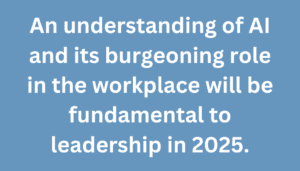
Companies and organizations that do not embrace the use of AI will find themselves at a disadvantage in the next few years. As a leader, you don’t want to sit back and watch this happen at your firm.
- Emotional Intelligence
Research indicates that emotional intelligence in leaders correlates to favorable organizational cultures, high job satisfaction levels, and strong employee engagement. Emotional intelligence includes such traits and competencies as self-awareness, self-management, awareness of others, emotional reasoning and the ability to inspire. Emotional Intelligence also entails refined communication skills with an eye towards emotional impact and a genuineness that underpins authenticity, transparency, and trust. The future clearly belongs to emotionally intelligent leadership.
Interestingly, the rise of AI advances the rise of EI as technical skills are taken over to some extent by AI-powered hardware and software. EI skills will therefore have a growing impact on the reputation and perception of a leader.
- Change Management
The business landscape of the 21st century is remarkably dynamic, fueled by digital technologies and globalized economies. In 2025, leaders must have the skills to manage change successfully. They must be able to adapt quickly and decisively to both internal and external changes. The more a leader can accept, plan for, and adapt to change, the better that person will be at leading.
There are many change management frameworks out there. We like the Bridges, Prosci, and Kotter models. Oftentimes organizations are looking for outside support with major change management initiatives. In such a case we are happy to provide coaching for the executives and teams leading the change as well as retreat facilitation.
- Social Media Savviness
Social media could be renamed “business media” because, more and more, it’s become a preferred forum for engaging with clients and prospects and sharing relevant and timely information. LinkedIn, Instagram, Facebook, X, Pinterest, YouTube, Snapchat, TikTok and other platforms are now home to extensive marketing, sales, and training activities, often conducted by the world’s largest organizations and leading business experts. Leaders must understand these platforms and how they’re used to drive revenues and shape business strategies.
Leaders can establish their own public personas on leading platforms. And don’t forget the power of podcasting. You might think getting on TV or video is good, but getting on a top-rated podcast will put you in front of millions more. Savvy leaders understand the ROI of being visible on various platforms.
- Inclusivity and Diversity
Regardless of some commentary suggesting that these are buzzwords for social responsibility reports, leaders must not lose sight of the real value of workplaces where collaboration and diverse perspectives power innovation and business success; environments where diverse perspectives are valued and integrated. Emphasizing empathy and cultural competence will ensure leaders build strong, inclusive teams. In a recent Gallup survey asking people to name the leading attributes they were looking for in their next job, a culture where all employees feel accepted and valued made the list.
Younger generations who will make up the ranks of future leaders are looking for such workplaces and will make choices based on their perception of how well companies are doing to move in this direction.
6. Creating the Learning Organization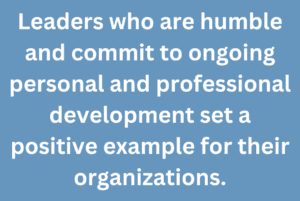
Leaders who are humble and commit to ongoing personal and professional development set a positive example for their organizations. By setting the tone for continuous learning, these leaders cultivate a learning culture that engenders greater curiosity and innovation. It also ensures that people remain adaptive and nimble which supports success with change initiatives which are bound to happen annually.
This is about more than having regular training classes. It can also incorporate pre- and post-mortems, innovation sessions, inclusive strategic planning retreats, active feedback loops within teams, AMAs with leadership and more.
- Creativity and Innovative Thinking
In the highly competitive world of 2025, creative and innovative thinking will remain a must for successful leaders. This type of behavior is rooted in a culture that supports and rewards risk-taking, failing forward and collaboration across the organization.
When people share knowledge, trust each other and think well into the future of their business, innovative thinking can thrive. We say well into the future because you need to do more than just think about what customers will need next year. Think about what they’ll need from you in five years. That will lead to significantly new thoughts about what you can and should provide.
- Employee Wellness
It’s a well-known fact that healthy employees are more productive and engaged. In today’s demanding work environment, the well-being of employees has never been more crucial. Leaders who champion the health and wellbeing of their team members create a supportive environment where wellness and trust are prioritized. Mental health must also be considered as important as physical health. Leaders who advocate for their team members’ holistic health will be respected by their staff and rewarded with their loyalty.
During the pandemic, concern for the wellbeing of employees dramatically increased and it was felt by the workforce. Now that it’s in the rearview mirror, leaders should maintain that same sense of care and empathy.
- Strategic Foresight and Complex Problem-Solving
Even the most advanced forms of AI modeling in 2025 will only scratch the surface of replicating the thought processes of the human mind in collaboration with others. So, despite these promising technologies, leaders will still need to apply their own intellect, judgment, and foresight when it comes to laying out strategic plans and solving complex, nuanced problems. A leader’s cognitive competency will remain a key benchmark of their leadership abilities.
- Effective Conflict Management
Few leaders actually encourage conflict, yet it’s a regular occurrence in the lives of today’s leaders. When a conflict arises, an effective leader leans into it and resolves it before it affects the business negatively. When properly dealt with, a conflict may even turn out to be positive for an organization, as it can lead to stronger bonds, new understanding and appreciation for different perspectives, or new ideas. Given human nature, conflict management will remain an essential skill for leaders in 2025.
What sets apart leaders in this regard is their willingness to have difficult conversations when the time is right to have them. They don’t procrastinate or hope that things will get better on their own. Instead, they meet with counterparts to talk through the tough stuff and come to an agreement on a way forward with a commitment to action.
A Great Time for Self-Evaluation
The start of a new year is an excellent time to conduct a candid self-evaluation of your strengths and weaknesses as a leader, using the above listing of essential skills as a starting point. How many of these attributes do you feel you’ve mastered? Where do you need to improve and raise the bar?
If you have room to grow and would like to accelerate your progress, consider working with an executive coach. We help leaders focus on those areas that need attention and will benefit them and their organizations. Schedule a complimentary meeting with us to learn more about how we can guide you to greater effectiveness.
Here are more resources related to this topic:
Articles
- Empowering Your Leadership Through Executive Coaching Services
- The Benefits of Executive Coaching in the C-Suite
- From Manager to Leader: Executive Coaching for Leadership Development
- Leading with Emotional Intelligence
Case Studies
- Executive Coaching Helps a Young Leader Garner the Respect and Loyalty of Her Veteran Team
- Empowering a CEO-Designate to Rise to the Challenge
- Guiding a Leader to Employ Emotional Intelligence at Work
eBooks
YouTube Videos
- 4 Reasons Why You Need to Invest in Your Emotional Intelligence as a Leader
- Elevate Your Leadership – The Art of Being Fully Present in Meetings
- The Hidden Traits of an Inspiring Leader (Even if you don’t see yourself as inspiring!)
- Decisive Leadership: How to Make Better Decisions
Photo copyright: Featured photo is from ©August de Richelieu via Pexels. Secondary photo is from ©Vlada Karpovich via Pexels.
